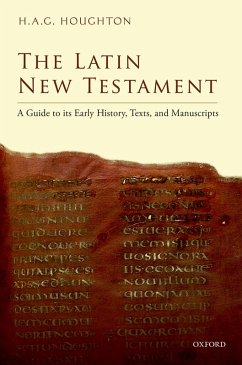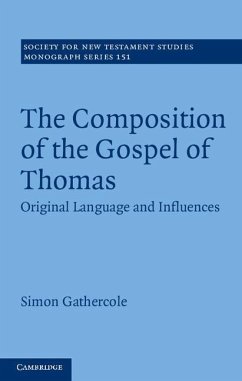
The Greatest English Classic (eBook, ePUB)
A Study of the King James Version of the Bible and Its Influence on Life and Literature

PAYBACK Punkte
0 °P sammeln!
In "The Greatest English Classic," Cleland Boyd McAfee offers an insightful exploration of the rich tapestry of English literature, situating canonical texts within their historical and cultural contexts. McAfee's literary style is characterized by analytical precision and a narrative fluency that invites readers to engage deeply with the themes and characters of the classics. Through a careful examination of texts from Chaucer to Shakespeare, and beyond, the author highlights the enduring relevance of these works, emphasizing their influence on the development of the English language and lite...
In "The Greatest English Classic," Cleland Boyd McAfee offers an insightful exploration of the rich tapestry of English literature, situating canonical texts within their historical and cultural contexts. McAfee's literary style is characterized by analytical precision and a narrative fluency that invites readers to engage deeply with the themes and characters of the classics. Through a careful examination of texts from Chaucer to Shakespeare, and beyond, the author highlights the enduring relevance of these works, emphasizing their influence on the development of the English language and literary tradition. McAfee, a renowned theologian and educator, was deeply influenced by his scholarly background and passion for literature. His academic journey, spanning the realms of philosophy and theology, equipped him with the critical tools necessary to approach literary analysis with a unique perspective. It is evident that McAfee's intention in writing this book was to bridge the gap between moral inquiry and literary appreciation, encouraging readers to find deeper meaning in the texts. For readers seeking to enrich their understanding of English literature, "The Greatest English Classic" is an essential resource. McAfee's eloquent prose and insightful commentary not only illuminate the significance of classic works but also inspire contemporary readers to appreciate the timeless joys and moral lessons inherent in these literary masterpieces.
Dieser Download kann aus rechtlichen Gründen nur mit Rechnungsadresse in A, B, BG, CY, CZ, D, DK, EW, FIN, F, GR, H, IRL, I, LT, L, LR, M, NL, PL, P, R, S, SLO, SK ausgeliefert werden.













